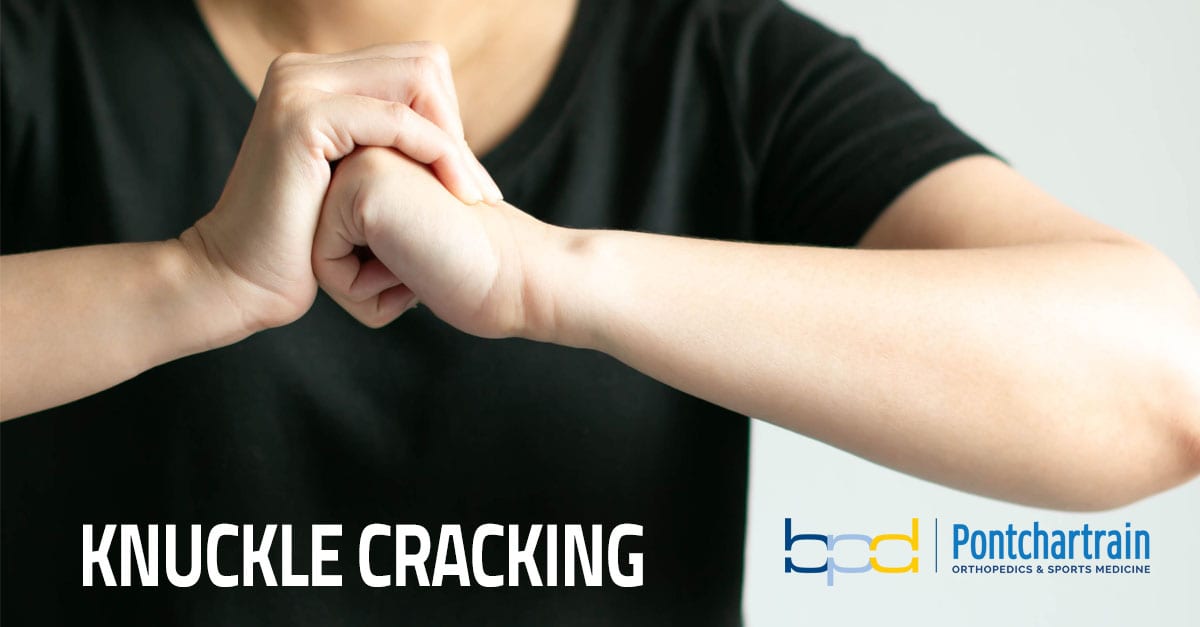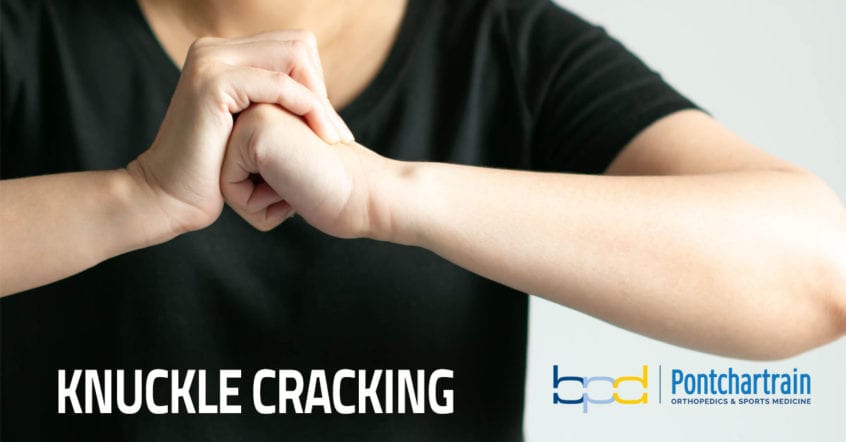
Many people crack or pop their knuckles on a regular basis. For some, knuckle cracking is a satisfying daily routine that relieves stress and stiffness. For those who do not crack their knuckles, it might be an annoyance. But can this habit be harmful to our hands? Today’s blog post will explore whether or not habitual knuckle cracking can cause long-term damage to our joints.
Why do knuckles crack?
There are several types of joints in our bodies. Our knuckles are synovial joints, and within them is a cavity filled with fluid. This synovial fluid lubricates your joints to allow for easy movement. Synovial fluid contains oxygen, nitrogen, and carbon dioxide molecules which help pad the space between our bones. When we squeeze or bend our knuckles, these molecules expand into a gas and burst, causing a popping noise. This phenomenon can be likened to opening a bottle of champagne-- when the cork is removed, the gasses within the liquid escape, causing that familiar "popping" sound.
Does cracking knuckles cause arthritis?
Many highly respected groups such as Harvard and the Johns Hopkins Arthritis Center have performed studies to explore the link between knuckle cracking and arthritis. Arguably the most fascinating research into knuckle-cracking was done by Dr. Donald L. Unger of Thousand Oaks, California. Dr. Unger cracked the knuckles on his right hand for over 60 years. He left the fingers on his left hand "uncracked." After decades of knuckle cracking, he performed X-rays on each of his hands and determined that there was no difference between the knuckles in each of his hands and no notable arthritis in the knuckles he routinely cracked. Additional larger studies have performed similar tests and have drawn similar conclusions.
So, is knuckle cracking is harmless?
Not entirely. Though there is no evidence that knuckle cracking causes arthritis, there are rare cases of people injuring their knuckles due to frequent and forceful cracking. When people force their knuckles to pop, they are more likely to cause swelling, tendon injuries, and joint dislocations. Those who try to crack their knuckles by bending their fingers in unnatural positions can also injure their knuckles. However, a majority of those who habitually crack their knuckles never experience pain.
What does frequent cracking do to the hands?
Dr. Donnelly weighed-in on the debate saying, "like other repetitive motions, excessive knuckle cracking can lead to joint aggravation and swelling." According to a study performed by the national institutes of health, knuckle crackers are more likely to experience swelling in the fingers and lower grip strength. Knuckle cracking is also associated with other habitual behaviors, like nail biting, smoking, and drinking alcohol. This study concluded that frequent knuckle cracking can lead to functional hand impairment.
Don’t ignore joint or other hand pain
While knuckle cracking has been deemed largely harmless to hand health, pain in the joints of the hand may be a sign of a more serious condition. Early diagnosis and treatment of hand pain can prevent long-term damage and aid in a faster recovery. If you have pain in your hand, wrist, or elbow, schedule an appointment with Dr. Donnelly today.
This site is not intended to and does not provide medical advice, professional diagnosis, opinion, treatment or services to you or to any other individual. Through this website and links to other websites, Brandon P. Donnelly, MD provides general information for educational purposes only. The content provided in this website and links, is not a substitute for medical care or treatment. You should not use this information in place of a consultation or the advice of your healthcare provider. Brandon P. Donnelly, MD is not liable or responsible for any advice, course of treatment, diagnosis or any other information, services or product you obtain through this site.


